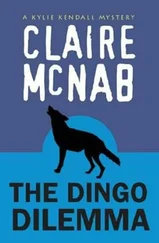* * *
June 23 T-minus 1 day to nuclear detonation
THEY WEREN’T COVERING enough ground by the time the sun set. Wanato let his imagination sprint ahead as he tried to will his future into existence. His brother’s beautiful wife would be the first to lay eyes on him, Wanato decided. She would go into shock as he emerged from the forest after the most challenging quest of his life. He might need to whisper his name to assure her that he wasn’t his twin brother and that the world hadn’t completely turned inside out. The dead hadn’t risen, but the lost had returned. Wanato would reach for her as tears slid down their cheeks. Senses regained, she would grab hold of him and wail with joy.
With that, the rest of his family would come running. His old aunt would place her shaking palms on his shoulders. She would need to feel him to believe in the miracle of his return to the Earth’s hot and fat middle from the ocean of ice at its northern pole. And his brother’s sons—who could have been his own sons, by the looks of them—would sit beside Wanato by the fire and listen to stories of snow and ice, a metal ship that was as big as a village, a picture taker named Jack, and a flying helicopter that lifted him into the air and brought him home. Over the days and nights, he could fill the hole his brother left and gain the family he never had…
Wanato spotted a familiar vine and darted to examine its choking hold around a dead trunk. By the time the others caught up to him, Wanato was smiling.
“Japu bird’s snot,” he said in English, and pointed.
He told them it was the vine’s Wayãpi name. During the days of the Old People, the japu bird started sobbing and didn’t stop until the whole forest was covered in his snot.
“Gross,” Ned said.
But Wanato’s face was melting from something hard into something soft as each familiar thing caught his eye.
“How many days have we been at this, Gustavo?” Ned asked, and clenched his jaw.
Wanato never understood the white man’s obsession with counting things. What did it matter how many days they had been in the forest? Did it change anything to know?
“Twenty-one days,” Zhen said immediately.
She didn’t say it with an accusing tone, even though they were starving and miserable. Their skin was slick with dripping sweat, and welts from blood-sucking insects had made their joints swollen. One of Zhen’s eyelids was so puffy it wouldn’t open. The men were shirtless, exposing pronounced rib cages, knobby spines, and sharp shoulder blades.
The others had followed Wanato for days and days (twenty-one, according to Zhen), silently grateful for his drive and knowledge of the forest. Wanato saw the movements of a poisonous snake where the others saw only leaf litter. He saw the broad, waxy leaves that could carry the embers of a fire or be bent to funnel rainwater straight into their canteens. At night, Zhen and Dewei selflessly divided their food into small, equal rations until it was all gone. Now their stomachs were long empty and their strength and spirits were failing.
Ned limped up to Wanato. He stumbled so often that Zhen and Dewei stayed close and grabbed hold of his arms when he tilted. They went down hard with the big American every time.
“I know you’re happy to be home,” Ned said carefully, “but we’re gonna die if we don’t eat.”
Wanato had been angry as they left the highway and headed into the forest. He didn’t want the worry of trying to keep three other people alive. But he owed his life to Zhen and Dewei for the food that had sustained them this long. And to Ned, he owed his return home. Wanato’s gratitude was boundless, and truth be told, he found the young man endearing on the days he had patience. Wanato didn’t want to leave these three unless there was no other choice. He owed them that. And he owed himself the peace of mind that he had done all he could for them.
“We need a new plan,” Ned told Wanato.
“No, same plan. We find the Oyapock,” Wanato said. “We are close. If you want to give me the compass to hold—”
“Not a chance. You’re not done with me until I say so.”
“Then keep us headed south,” Wanato said, and led the way forward.
* * *
THE NEXT DAY, just before dusk, Ned fell and wouldn’t get up. Zhen and Dewei tried to pull him to his feet, but he wouldn’t budge. Wanato doubled back and crouched beside him.
“Just go,” Ned said softly.
He gave the compass to Wanato without looking him in the eyes. It might have been shame, or maybe he always expected to be left to die. Zhen couldn’t get him to say much while the four of them sat in the underbrush, too exhausted to slap away mosquitoes. The sun crawled across the canopy.
“The daylight’s almost gone,” Ned finally said to Zhen.
It must have been easier to talk to her. There was a kindness about Zhen that drew you in.
“You should go while you can,” Ned almost pleaded.
Zhen spoke Chinese to Dewei, who nodded in agreement.
“We will wait with Ned until morning,” she said to Wanato. “You can go.”
They were all releasing him from blame. Wanato held the compass, looked down at his feet, and gave them a silent command. If he waited any longer, if he tried to say goodbye, he wouldn’t be able to do what he must. Wanato stood and trudged ahead with all his remaining strength. He didn’t turn around, but he felt their eyes watching his back.
I couldn’t save them. How many times had he thought this, and would he ever believe it?
Wanato kept moving and focused solely on the hunger that tried to claw its way out of his belly. Starvation didn’t recognize friends, family, or lovers, only its own pain. Wanato focused so hard that he nearly tripped and twisted an ankle on something round and partially hidden by underbrush. It was another familiar part of the forest: a large seedpod. Wanato picked it up and turned in circles, scanning the forest. Then he saw a grove of the largest trees in the whole Amazon.
Wanato hurled himself back the way he came, clutching the seedpod to his chest. As soon as he could take in enough breath, he screamed Ned’s name. Zhen hollered back in the distance, leading Wanato back with her voice. When he found them, Ned bowed low to hide his tears. Wanato had to crouch.
“I can save you,” he whispered to Ned.
The American grabbed him in a shaky embrace.
“Just a little farther,” Wanato said quickly. “I swear it.”
He pried off Ned’s hand and placed the hard pod onto his palm.
“What the hell is this?”
Ned looked up into Wanato’s eyes and saw a new excitement and urgency that brought him to stand on failing legs and wipe his tears. Wanato led the way, with Zhen and Dewei in the middle and Ned at the back, stumbling and holding on to tree trunks when he fell. They reached the grove of trees whose trunks rose above the canopy. The dullish seedpods littered the ground by their roots. Wanato used Ned’s hunting knife to saw off the top of one and pull out a large, rough seed with a seam along the pinched edge of its shell.
Ned crumpled to the ground. “Brazil nuts!” he gasped.
Ned looked like he didn’t know whether to smile or cry with relief. He did both as Wanato cut into the seed’s seam with his knife, shelled it, and tossed it to Ned. Wanato stood just out of reach as he continued to toss the Brazil nuts one by one. He had to avoid getting locked in Ned’s grateful grip before he could dispense the foods his friend so desperately needed. Dewei bowed in gratitude when Wanato threw him a shelled seed and then returned the favor with a seed he had just shelled with his small utility knife. The young man was good with tools.
“Brazil nuts aren’t nuts at all,” Ned blubbered, sniffing a runny nose. “They’re seeds. Go figure.”
Читать дальше












